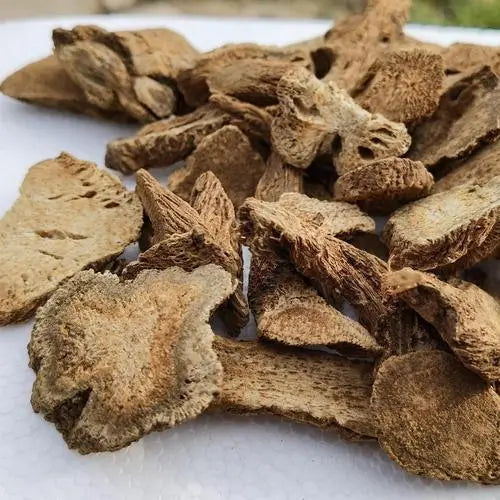Qi medicine
Drugs whose main function is to regulate qi and are often used to treat qi stagnation and qi inversion caused by qi imbalance are called qi-regulating drugs, also known as qi-moving drugs. Among them, those with strong qi-moving power are also called qi-breaking medicines.
This type of medicine has a bitter, warm and aromatic nature and flavor, and is mainly directed to the spleen, stomach, liver and lung meridians. The pungent fragrance can be dispersed, the taste is bitter and can be relieved, and the warmth can be circulated, so it has the effect of regulating the qi mechanism, and can achieve the effects of relieving pain, dispersing stagnation, and reducing indigestion by regulating the qi mechanism. It is mainly used to treat qi stagnation and qi inversion caused by qi imbalance. Due to the different action sites and characteristics, they have the effects of regulating qi and invigorating the spleen, soothing the liver and relieving stagnation, regulating qi and widening the chest, promoting qi and relieving pain, breaking qi and dispelling stagnation, reducing adverse flow and relieving vomiting. It is respectively suitable for the treatment of abdominal distension and pain, belching and acid regurgitation, nausea and vomiting, diarrhea or constipation caused by stagnation of spleen and stomach Qi; distending pain in hypochondrium and ribs caused by stagnation of liver qi, depression, hernia pain, breast distending pain, irregular menstruation, etc. ; Chest tightness, chest pain, coughing and asthma caused by stagnation of lung qi.
This type of medicine is pungent, warm, fragrant and dry, and can easily consume qi and damage yin, so those with insufficient qi and yin should use it with caution.
Woody incense
It was first recorded in "Shen Nong's Materia Medica".
This product is the dried root of Asteraceae. Imported from Guangzhou, it is called Guangmuxiang. The domestically introduced species in Yunnan is named "Yunmuxiang". The aroma is unique and the taste is slightly bitter. The ones with strong aroma and sufficient oiliness are better. Cut into thick slices and serve raw or simmered.
【Medical Properties】 Pungent, bitter, warm. Returns to the spleen, stomach, large intestine, triple burner, and gallbladder meridian.
[Efficacy] Promotes qi and relieves pain, strengthens the spleen and eliminates food.
【application】
1. Stagnation of spleen and stomach qi, abdominal distension and pain, indigestion, and lack of desire to eat
This product is pungent, bitter and warm, has a strong aroma, can regulate the triple burner, and is especially good at relieving qi stagnation in the spleen and stomach. Therefore, it is a good product for regulating qi and relieving pain. It can also strengthen the spleen and eliminate food, so it is especially suitable for food with stagnant qi.
2. Heavy after diarrhea
This product is pungent and bitter, and is good for stagnant Qi in the large intestine. It is an important medicine for treating diarrhea and dysentery.
3. Chest and hypochondrium pain, jaundice, hernia pain
This product has a pungent aroma and a bitter taste that can relieve pain. It can move the triple burner and gallbladder meridian, and can regulate the qi of the liver, gallbladder, and triple burner. It can be used to treat swelling and pain in the chest and hypochondrium due to damp-heat stagnation, liver failure and Qi blockage, jaundice and bitter mouth, cold hernia, abdominal pain and testicle pain.
In addition, the aroma of this product can wake up the spleen and stimulate the appetite. When used in tonic prescriptions, it can alleviate the stomach-sickness and qi-stagnation disadvantages of tonic medicines. For example, "Jisheng Prescription" Guipi Decoction combined with woody fragrance can make the qi-tonifying and blood-nourishing medicines replenishing. without stagnation.
[Usage and Dosage] Decoction and take, 3~6g. When used raw, it has strong qi-promoting power; when simmered, it is used in the intestine to relieve diarrhea and is used for diarrhea and abdominal pain.
[Usage Precautions] This product is pungent, warm and fragrant, so use it with caution in those with yin deficiency and excessive fire.
【With medicine】
1. Kawasaki
It is the dry root of the chrysanthemum chrysanthemum or chrysanthemum chrysanthemum in the family Compositae. The nature and flavor are pungent, bitter, and warm; it returns to the spleen, stomach, large intestine, and gallbladder meridians. Function promoting qi and relieving pain. For chest flank, epigastric distension and pain, borborygmus and diarrhea, tenesmus. Decoct and take, 3~9g.
2. Inulin
It is the dry root of Elecampus chinensis. Pungent in nature and flavor, bitter, warm; Return liver, spleen meridian. Function invigorates the spleen and harmonizes the stomach, promotes qi and relieves pain, and prevents miscarriage. It is suitable for chest and hypochondrium, epigastric distension and pain, vomiting and dysentery, chest and hypochondrium contusion, bifurcation pain, fetal movement disturbance. 3~9g, mostly in pills and taken in powder form.

